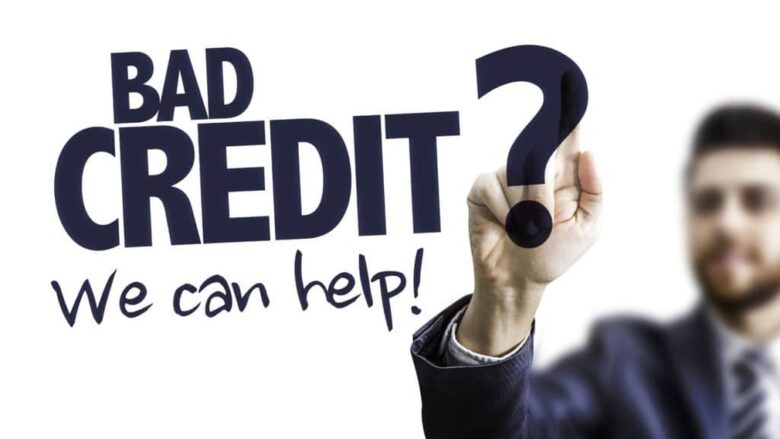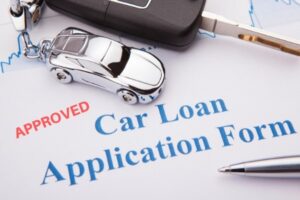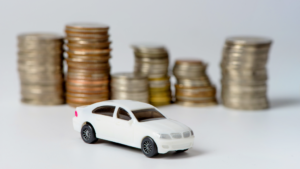If you have bad credit, it can be difficult to get a car loan, but it is not impossible. If you want to get a car loan even if you have bad credit, here are some important tips:
1. Know Your Creditworthiness:
Before you apply for a car loan, you need to know exactly where your credit stands. You can obtain a copy of your credit report from Equifax, Experian, or TransUnion (some of the larger credit companies). Read your report carefully to see if there are any errors or gaps that could hurt your credit score. Figuring out what to do to improve your credit depends on how much money you have.
2. Get a Credit Report:
How much loan you can get and what terms you can get depend on your credit score. Your credit score is one of the most important factors lenders consider when deciding whether to give you a loan. They may also look at your income and work experience. If your credit score is lower (usually lower than 620), you may have to pay more for the loan or accept stricter terms. Other accounts and pay back all your payments on time.
3. Save Money for a Larger Down Payment:
Saving money for a larger down payment is one way to increase your chances of getting a car loan, even if you have bad credit. When you make a larger down payment, you have to borrow less money and show the lender that you can pay it back. Try to save 10 to 20 percent of the car price for a down payment. A higher down payment can also help offset the higher interest rates that come with bad credit, which can increase your chances of getting a car loan.
4. Research Lenders Who are Aware of Bad Credit:
There are companies that specialize in car loans for people with bad credit. People with bad credit may be able to get loans from these lenders because their requirements are less strict. Find the best deal for your budget by researching and comparing the services of different bad lenders. Be wary of questionable lenders who may offer exorbitant terms or interest rates.
5. Consider Co-Signers:
You’re more likely to get a car loan with bad credit if you have a cosigner with good credit. If you don’t, the person who co-signed your loan agrees to pay it off. This provides an extra layer of security for the lender. Choose a cosigner who is willing to share responsibility for your loan and who has a good credit history. When you apply for a loan, it affects your credit history and the credit history of the person you support.
6. Check Out Different Offers and Stores:
When looking for a car loan with bad credit, it’s important to get quotes from multiple companies. Each lender may have different loan terms, interest rates and criteria for obtaining a loan. Comparing prices can help you find the deal that best suits your budget and financial goals. Be prepared to discuss the terms and ask about any fees or costs associated with the loan.
7. Be Prepared for Rising Interest Rates:
If you have bad credit, you may have to pay more for a car loan than someone with good credit. When interest rates are high, it costs more to borrow money, and your monthly payments increase. Before taking out a loan, carefully consider how interest rates will impact your expenses and finances. Be honest with yourself about how much you can afford to avoid getting into debt or defaulting on your loan.
8. Make Sure Your Monthly Payments Are Reasonable:
When looking for a car loan with bad credit, make sure your monthly payments are within your budget. You can get an idea of your monthly repayments by using lending tools to compare different loan terms and interest rates. You may be able to lower your monthly payments by extending your loan, but keep in mind that you will pay more interest over the life of the loan. To save on the overall cost of the car and build equity faster, choose the shortest loan term you can afford.
Conclusion:
It may take a little more work and planning to get a car loan with bad credit, but it is possible if you take the right steps. You can increase your chances of getting a car loan that fits your budget and financial goals by: learning about bad lenders, making a larger down payment, shopping around, preparing for higher interest rates, focusing on monthly payments. Make the repayments affordable, show proof of your income, and consider buying a used car. To improve your financial future and build your credit over time, prioritize affordability and responsible spending.
FAQs:
1. Can I Refinance a Car Loan with Bad Credit?
Refinancing cars with bad credit is difficult but possible. If your credit score has improved since your loan, refinancing can lower your interest rate and improve your terms. Compare lenders’ offers to discover the best refinancing deal.
2. Can I get a car loan without credit?
Getting a car loan without credit is possible, but difficult. Lenders may consider employment history, income stability and the size of the down payment when assessing a loan application.
3. How can applicants with negative credit loans increase their chances of applying?
Save for a larger down payment, research bad lenders, consider co-signers with good credit, and focus on cheap monthly payments that fit your budget to increase your chances of getting a bad credit loan.
4. Does bad credit affect my interest rate?
Bad credit car loans have higher interest rates than good credit loans. Interest rates vary based on the lender’s credit score, income, down payment, and policies. Expect interest rates to rise and compare lenders to get the best deal.
5. Should I use dealer financing with bad credit?
The dealership works with many lenders to provide financing to customers with bad credit. However, dealer financing may carry higher interest rates or fees. To find the best rates, compare quotes from banks, credit unions, and online lenders.




